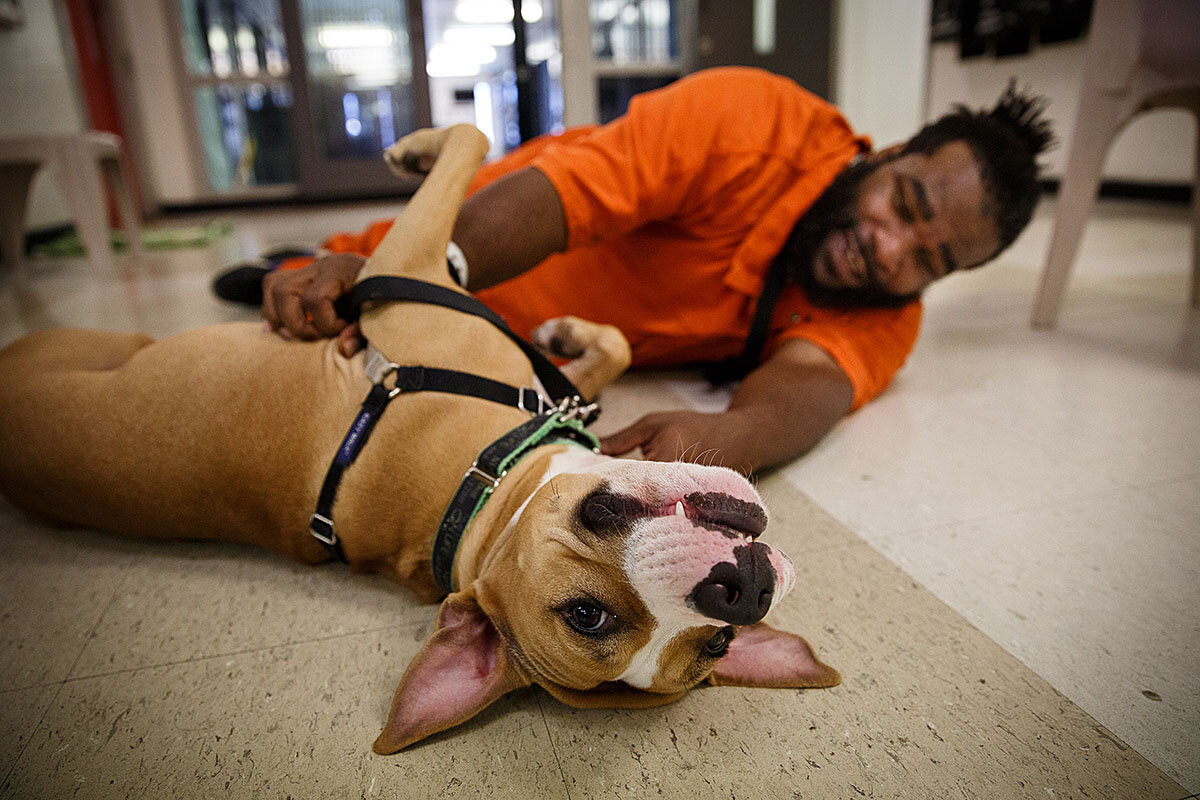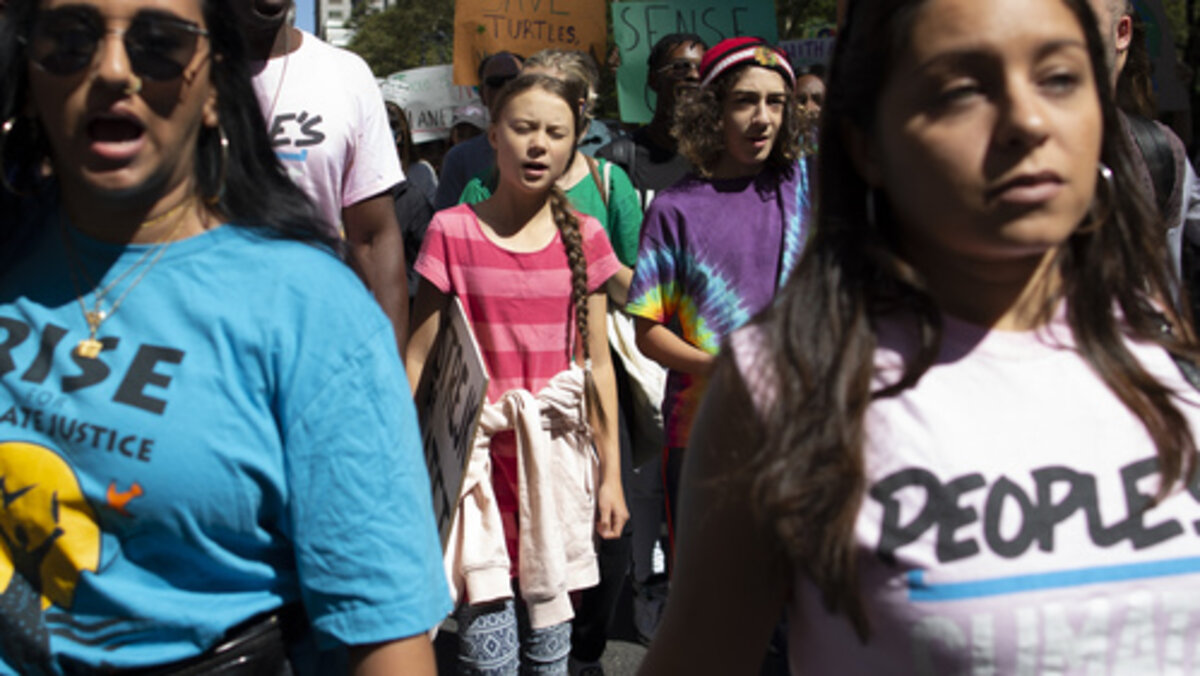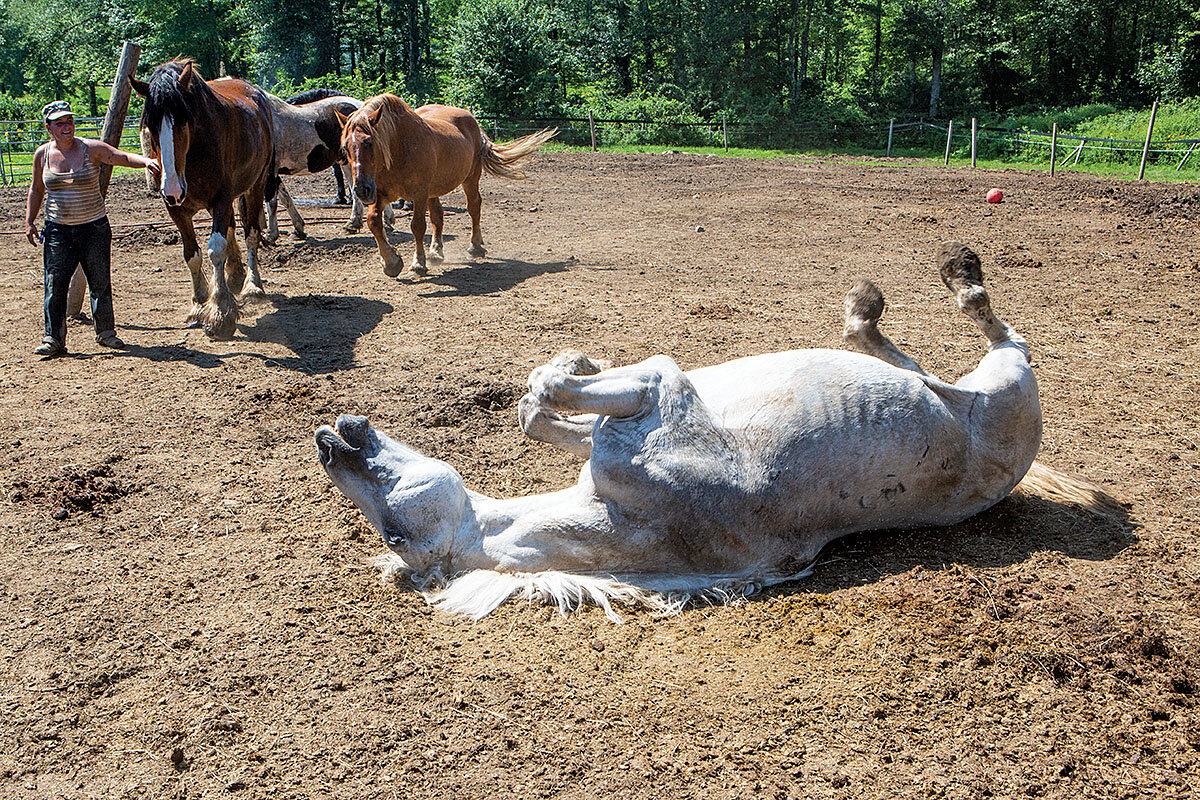To many Democrats, impeachment looks like the moral high road. But the public at large is divided on this sensitive issue. That goes a long way toward explaining leaders’ mixed signals.
Monitor Daily Podcast
- Follow us:
- Apple Podcasts
- Spotify
- RSS Feed
- Download
 Laurent Belsie
Laurent Belsie
Today’s stories examine public ambivalence about impeachment, protests against Hungary’s “patriotic” education reforms, scientists uniting people around climate change, intensive grandparenting, and dogs, inmates, and second chances.
She was an older mom getting on the T, Boston’s subway and trolley system, with her teenage son. “Why don’t you sit with me?” she asked. He said nothing and found another seat. “He’s at that stage,” she sighed. It turns out, though, that mother and son are united on one issue: climate change. They were headed to the local climate change strike where her son undoubtedly found good company. Students from around the country skipped school so they could join the worldwide protest on the eve of a U.N. climate summit.
Ditto for international kids from Hong Kong and Melbourne to Delhi, Athens, Paris, and the suburbs of Kampala, Uganda (#KeepMamaAfricaGreen). Inspired by Sweden’s Greta Thunberg, a teen who herself had been skipping school on Fridays to protest, these students wanted their message heard.
It’s tempting to say this new wave of protesters is more committed to battling climate change than older generations are. But a recent Washington Post-Kaiser Family Foundation survey of roughly 600 teens and 2,300 adults offers a more nuanced view: On most climate questions, parents and teens are remarkably in sync. Where do they differ? Teens are more willing to trust the science and more eager for action: 3 in 4 say the U.S. is doing too little.









